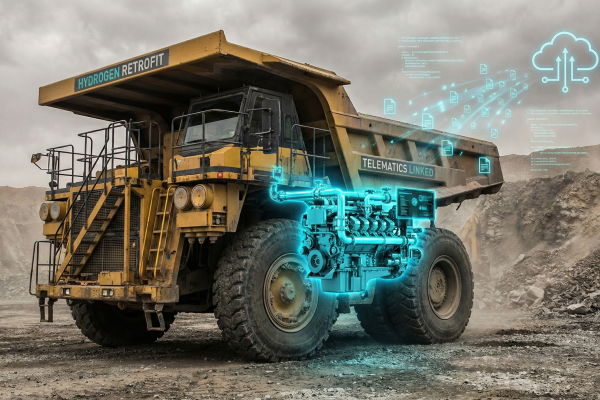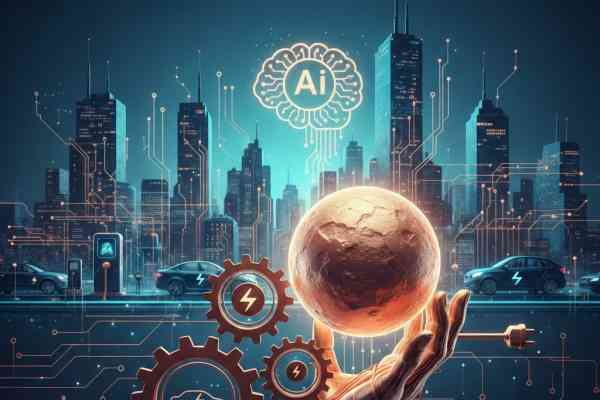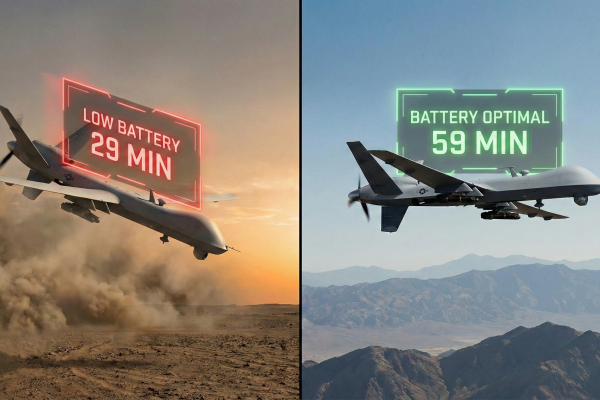May 26th, 2023 | 08:30 CEST
FREYR Battery, dynaCERT, BYD - Speed beats engineering and bureaucracy
The hunt is on for high-performance powertrains! Industry-experienced Canadian hydrogen technology company dynaCERT shines with a new collaboration with Cipher Neutron. Together they are creating an electrolyzer cell that will produce 28 times more hydrogen gas than conventional cells. FREYR Battery is also making progress with its battery gigafactories, but soon on the other side of the Atlantic due to tax advantages, as the domestic government in Norway seems too slow. Progress could be faster at Volkswagen. What good is German engineering when rival BYD is not only selling cars at a breathtaking speed but also securing battery production in China for the Company's own growth? We provide an overview.
time to read: 5 minutes
|
Author:
Juliane Zielonka
ISIN:
Freyr Battery | LU2360697374 , DYNACERT INC. | CA26780A1084 , BYD CO. LTD H YC 1 | CNE100000296
Table of contents:

"[...] Why should a modular electrolyzer cost more than a motorcycle? [...]" Sebastian-Justus Schmidt, CEO and Founder, Enapter AG
Author
Juliane Zielonka
Born in Bielefeld, she studied German, English and psychology. The emergence of the Internet in the early '90s led her from university to training in graphic design and marketing communications. After years of agency work in corporate branding, she switched to publishing and learned her editorial craft at Hubert Burda Media.
Tag cloud
Shares cloud
FREYR Battery plans a battery gigafactory in the US for tax benefit
Progress on the development of FREYR Batterry's Giga Arctic battery factory in Mo i Rana, Norway, is moving ahead rapidly. Simultaneously, the Scandinavian company is expanding into the US, also with the construction of a battery factory. FREYR invested a total of EUR 59.9 million in previously approved projects in Q1/2023. Of this, around 75% is for the Giga Arctic battery factory, while the remainder is mainly for the completion of FREYR's Customer Qualification Plant (CQP) in Mo i Rana.
As the quarterly report states, "the parallel development of Giga Arctic and Giga America is being done to maximize the option value of the Company, its customers and other key stakeholders".
FREYR plans to use its batteries in electric cars and other vehicles, as well as in all areas where energy storage is required. This will involve using 24M Technologies' "semi-solid lithium-ion technology". The construction of the test factory marks the Company's first step.
Meanwhile, while the United States is extremely business-friendly, promoting companies and making every effort to establish and support new businesses under the Inflation Reduction Act (IRA), on the other side of the Atlantic, ironically, the Norwegian government is hindering itself.
The fact that Norway is not an EU member poses challenges for FREYR. According to EU regulations starting in 2027, batteries for electric vehicles must come from the EU or the UK. Norway is considered a third country and is subject to a 10% tax liability. These tax regulations also make it difficult for FREYR to produce other products.
So the Company prefers to shift its production to the US. How the Norwegian government will behave towards its flagship and whether there will be special permits remains to be seen. If not, FREYR will move production to the US without further ado.
dynaCERT develops high-performance electrolyser cells at a competitive price
Companies that are actively shaping the energy transition are currently in high demand. Due to its expertise, the Canadian company dynaCERT is one of the pioneers in the industry. The Company develops and markets technologies to reduce carbon emissions. The in-house HydraLytica™ telematics enables the monitoring of fuel consumption and the calculation of greenhouse gas emission savings.
In China, CO2 accounts are as much a reality as in the US. Both tech giants Alibaba and eBay use CO2 accounts to track the consumption of their employees and users.
The same is about to happen to the logistics industry. dynaCERT provides technology specifically designed for combustion engines for these cases. The focus is on tracking potential carbon credits.
The principle is both simple and ingenious: The patented technology generates hydrogen and oxygen through a unique electrolysis system and introduces them via the air intake. This improves combustion and has been proven to lead to lower carbon emissions and higher fuel efficiency.
Now dynaCERT has secured Cipher Neutron (CN) for an innovative collaboration. CN is an emerging technology company specializing in electrolyzers for the production of green hydrogen and reversible fuel cells for power generation and energy storage.
The common goal of CN and dynaCERT is to develop and manufacture commercial systems that can produce green hydrogen at competitive prices. This will enable them to compete in an increasingly competitive green hydrogen market and remain leaders in hydrogen technology. By applying this technology to Molymet's reduction processes, they aim to achieve cleaner and more efficient results.
The 5 kW AEM electrolyser cell produces 28 times more hydrogen gas than conventional alkaline cells of the same size. This enables cost reductions in raw materials and the elimination of expensive platinum group metals as catalysts. The unique design allows dynaCERT and CN to offer the planned AEM 250 kW stacks at an attractive price of less than EUR 882/kW.
Chinese e-car maker BYD could overtake VW by a long way
According to its German LinkedIn page, the Chinese manufacturer has sold more than 3.3 million vehicles with alternative powertrains by the end of 2022. It is the only manufacturer to develop and produce its own battery technology.
This year alone, BYD plans to sell another 3 million cars - and that number is rising fast. According to information from WirtschaftsWoche, the Company is building up enormous production capacities in China quickly. A satellite image analysis showing the construction progress of new plants forms the basis for this report. According to this, BYD could soon produce more vehicles than Toyota or VW. Before this construction boom, BYD produced cars at five sites in Shenzhen, Xian, Changsha and Changzhou.
A new BYD factory in Hefei, Anhui province, will soon enable an annual production of 1.32 million passenger cars. By comparison, the VW parent plant in Wolfsburg can produce a maximum of around 800,000 vehicles per year. In addition, BYD has had several dormitories built for the workers at the factory. The speed at which construction is progressing is also cause for amazement. It is said to have taken only about ten months from the groundbreaking ceremony to the delivery of the first passenger car in Hefei.
Meanwhile, Volkswagen is leaving Germany and building its largest battery factory in Canada. The Minister President of Lower Saxony, Stephan Weil, had spoken out in favour of building a second VW cell factory in Emden electrive.net/2023/05/23/volkswagen-streicht-wohl-plaene-fuer-zweite-batteriefabrik-in-niedersachsen. However, he was apparently outvoted on the supervisory board, with costs being cited as the reason.
The new business-friendly location of the VW cell plant will be St. Thomas, Canada, located in the province of Ontario, exactly halfway between Canada's largest city, Toronto, and the US auto metropolis of Detroit on Lake Erie. The group plans to invest EUR 4.8 billion in its first cell manufacturing facility abroad by 2030. Groundbreaking on the 150-hectare site is scheduled for 2024, and the factory is expected to begin operations three years later. Governments may pass laws, but harsh economic reality once again proves "survival of the fittest". And that puts carmaker BYD miles ahead of its German competitors.
FREYR Battery highlights recent announcements of support packages for gigafactories in Germany, France and Spain. The Company says it will move forward with Giga Arctic at a reasonable pace if the Norwegian government plays ball for the local site in its home country. The US remains the first-choice option for economic expansion. Maximization is also the focus of dynaCERT. With the new partnership with Cipher Neutron, both experienced companies are developing an electrolyser cell that achieves more power than conventional cells at an unspeakably low price. Speed and performance also count at BYD. The Chinese e-car maker is simply outstripping competitors like Volkswagen with its breathtaking speed in production and sales. For investors, this means diving deeper into probabilities of where the next growth potential lies dormant.
Conflict of interest
Pursuant to §85 of the German Securities Trading Act (WpHG), we point out that Apaton Finance GmbH as well as partners, authors or employees of Apaton Finance GmbH (hereinafter referred to as "Relevant Persons") may hold shares or other financial instruments of the aforementioned companies in the future or may bet on rising or falling prices and thus a conflict of interest may arise in the future. The Relevant Persons reserve the right to buy or sell shares or other financial instruments of the Company at any time (hereinafter each a "Transaction"). Transactions may, under certain circumstances, influence the respective price of the shares or other financial instruments of the Company.
In addition, Apaton Finance GmbH is active in the context of the preparation and publication of the reporting in paid contractual relationships.
For this reason, there is a concrete conflict of interest.
The above information on existing conflicts of interest applies to all types and forms of publication used by Apaton Finance GmbH for publications on companies.
Risk notice
Apaton Finance GmbH offers editors, agencies and companies the opportunity to publish commentaries, interviews, summaries, news and the like on news.financial. These contents are exclusively for the information of the readers and do not represent any call to action or recommendations, neither explicitly nor implicitly they are to be understood as an assurance of possible price developments. The contents do not replace individual expert investment advice and do not constitute an offer to sell the discussed share(s) or other financial instruments, nor an invitation to buy or sell such.
The content is expressly not a financial analysis, but a journalistic or advertising text. Readers or users who make investment decisions or carry out transactions on the basis of the information provided here do so entirely at their own risk. No contractual relationship is established between Apaton Finance GmbH and its readers or the users of its offers, as our information only refers to the company and not to the investment decision of the reader or user.
The acquisition of financial instruments involves high risks, which can lead to the total loss of the invested capital. The information published by Apaton Finance GmbH and its authors is based on careful research. Nevertheless, no liability is assumed for financial losses or a content-related guarantee for the topicality, correctness, appropriateness and completeness of the content provided here. Please also note our Terms of use.




